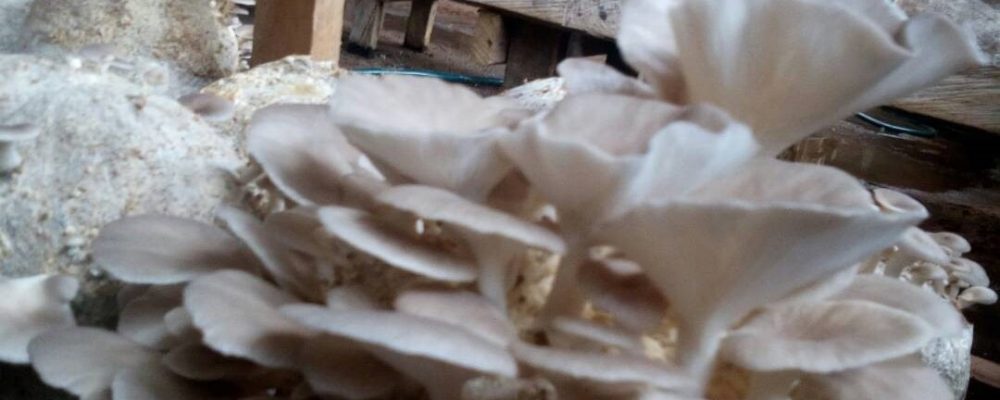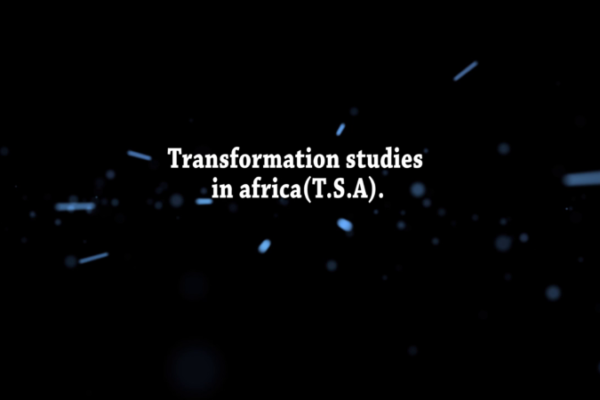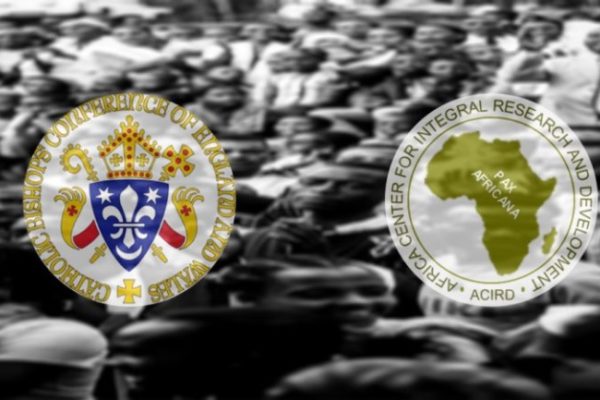Storytelling as a tool for transformation
In April this year, we had a meeting with the local farmers, about sixty of them. It was part of our participatory action research strategy, getting the people to identify, discuss and analyse their challenges and then proffer solutions from within. The local people complained that cassava farming is no longer profitable. Many families cultivate cassava, which they harvest, eat and then sell the leftovers. This is subsistence farming. They spend so much time and energy in the sun clearing the bush, planting and then waiting for the cassava to grow and mature. At the end of the day, they are able to harvest a few bags of cassava, which is priced very cheaply in the local market. To give a higher yield of cassava, the government shares thousands of fertilisers that they claim help to improve soil yield. But the people know the fertilisers don’t provide the solution, and only deplete the soil. They know organic farming is best.
First training session on mushroom growing
At this meeting, the group agreed to invite the most elderly women in the communities to the next meeting. These grandmothers and great-grandmothers are custodians of knowledge in the local communities. The oldest among them was an energetic slim old mama, who is 120 years old, while the others were between the ages of 75 to 110. As a student I had read in the books that life expectancy in Africa is low, 40% in some countries, 55% in others. The main reason, of course, was said to be poverty, meaning, in this case, a lack of money. The reality is there are many septuagenarians, octogenarians, nonagenarians and centenarians, many of them still active and alert. This misunderstanding of life expectancy is one tragedy of research and the researched. The researcher tells the story from his or her own point of view to suit a certain stereotype.
Sharing from the calabash of Knowledge
‘Once upon a time’, the eldest woman in the community, Mama Ageless, as she is fondly called, said, ‘there were mushrooms growing all over the land, and we used to harvest them to cook. These mushrooms supplied us most of our nutrients. But these days, there are not more mushrooms. Rather, we have bread and fries. Bring back mushrooms to the village’.
In the next meeting, the group of farmers decided to explore oyster mushroom farming. But all believed that mushrooms only grow in the wild, and no one knew they could be cultivated. As the chief co-researcher, I reached out to my colleagues to inquire about mushroom farming. The way forward is always to blend local indigenous knowledge with exogenous knowledge. The theory of “communitalism” , which I developed in my new book, ‘Integral Community Enterprise in Africa’, is based on the need to forge a synergy between these different modes of knowledge creation, bridging the gap between the old and the new. This is what I refer to as a communiversity rather than a university, a calabash of wisdom where knowledge flows in and out in the community, and into which everybody has something to contribute.
Mushroom training
Within two months, I organised a training session on mushroom cultivation to a select group of the local farmers. The two species cultivated were Pleurotus Ostreatus and Pleurotus Pulmonarius. Many of the selected people did not attend because they did not believe that mushrooms can be cultivated. Those who attended were enthralled, surprised and excited. It was a eureka moment for the participants, and they all exclaimed, ‘So it is possible!’
Since the initial training, hundreds of local farmers have applied to join in the next training. The goal is to move from subsistence farming to secure livelihoods, from food sufficiency to food security, from agriculture to agribusiness. Whereas a 100-foot plot of land can only give a few cassavas worth N35,000, the same plot of land could produce bags of mushrooms worth N150,0000. Unlike cassava cultivation, mushroom is planted inside the house rather than in the open, and the waste from the mushroom soil is far more useful as fertilisers than the synthetic fertilisers provided by the government.
What I learnt in the village
I have attended many seminars and workshops where I was taught that people need money in order to eat a balanced diet, and that if you give poor people money, they will eat good food. Armed with such foreign-made academic knowledge, I went to work among the poor men and women in a rural community in Nigeria. And they taught me another set of lessons, more realistic and more down-to earth. Here are some of the lessons:
- Do not give the people what they do not ask for: Some foreign NGOs, government officials and development workers often go to communities with ready-made answers to problems they have identified, and then convince the people to accept their solutions. Convincing them to accept your solution is easy. But the solution will not last because it will not be sustained. Unless the people ‘own’ the solution, they will abandon it when you are gone. That is the simple truth.
- More money does not translate into better food. We often think that the reason why poor people do not eat well is because they are poor. The reality on the ground is different: It often happens that the richer people get, the poorer their diet becomes. Again, more money does not translate into better food. Most often, the reverse is the case. The most important factor in eating a healthy, balanced diet is not money; it is knowledge –knowledge of the right food, the right food combination and the right time. I have discovered that people need more money to buy and eat the food that will eventually kill them!
- People in the local communities know more than they can tell. There is a huge deposit of implicit knowledge in the local communities. This knowledge is a potential asset that can be explored and tapped for the good of the society. Tapping into this requires an approach to education in the original sense of educare, the Latin word from which the English word ‘education’ is derived. Educare means to draw out, to bring out what lies within. We tend to see education as stuffing students with facts and figures and ideas. In this sense, the university becomes a place separated from the community, a sort of laboratory where objective knowledge is generated and stuffed into students. Such an approach to education creates a dichotomy between teaching and research, where the teacher is the one who knows it all, while the student is like an empty pot needing to be filled up with ideas, facts and figures. For this, the student must pay a fee.
Conclusion
The acquisition of Western knowledge has been and is still invaluable to all, but, on its own, it has been incapable of responding adequately in the face of massive and intensifying disparities, uncontrolled exploitation of pharmacological and other genetic resources and rapid depletion of the earth’s natural resources. In that context, a return to indigenous knowledge, cast in contemporary guise, is all-important.
In a divided world as ours, we do not need more billionaires, more consumers and more powerful men. The world is in dire need of more healers, more peacemakers and more storytellers, and this is where the true researcher comes in.









Comment(1)-

Andre says
February 5, 2018 at 9:47 amAfrica must be self-sufficient food-wise.